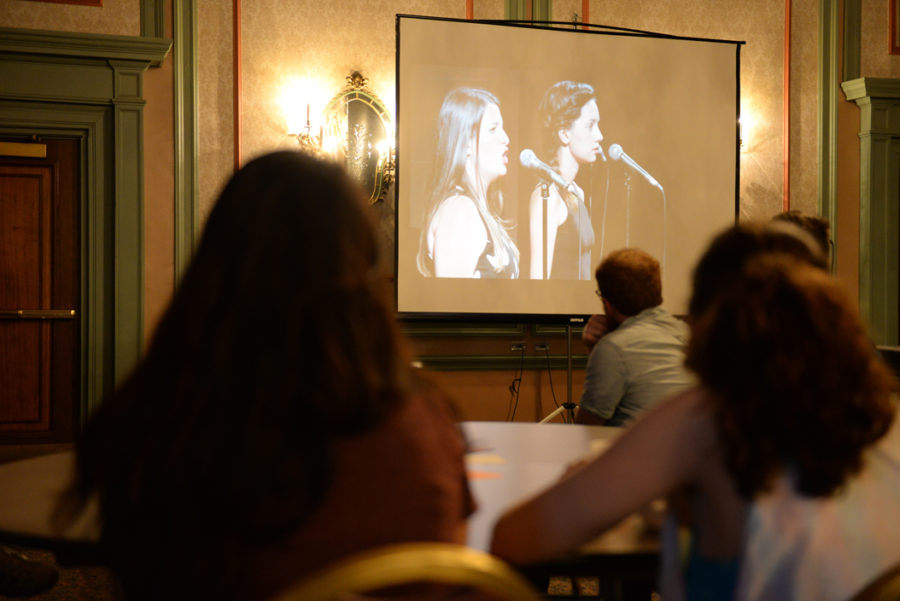At the Sexual Violence Open Mic Tuesday night, no one actually used a microphone. Instead, 13 students pushed two tables together inside the William Pitt Union for an intimate discussion on the effects of rape culture and sexual violence.
Pitt’s chapter of the American Association of University Women –– a national organization that works to empower women and fight for gender equality — held the event in the Kurtzmann Room of the WPU as rain poured outside.
Sara Best, president of AAUW at Pitt, said the group designed the event as an opportunity for survivors of sexual violence to heal through sharing their experiences.
“Storytelling is really important for people who are survivors of sexual violence,” Best said. “It’s important for us to have people tell their truth and hear each other’s stories.”
Though the AAUW planned for an event in which students shared poetry and stories through a microphone to the entire room, not enough students attended, so Best shifted the format to a more informal discussion.
“Sometimes it’s important to talk about this topic in a smaller setting,” Best, a senior economics and gender, sexuality and women’s studies major, said.
A 2015 survey at Pitt quantified the prevalence of sexual assault on campus, finding that 21 percent of females, 6 percent of males and 19 percent of transgender or non-gender conforming students reported experiencing “nonconsensual penetration involving force or incapacitation or sexual touching” during their college career at Pitt. The survey also revealed that bystanders were hesitant to report sexual assaults, with 40 percent of responders indicating that they don’t know what happens after reporting an assault.
Among the individuals who came to share their experiences was Casey Madden. A 2016 Pitt graduate, they attended the event representing the Gay and Lesbian Community Center, an LGBTQ+ advocacy group that wants to increase their community outreach.
“Speaking to a room full of people that you don’t know is pretty liberating,” said Madden, who is a sexual assault survivor. “Bringing people together like this, letting people who have been assaulted see that there are groups out there that support them, is very important.”
Before sharing their own experiences, the group watched two videos of women using slam poetry to speak about rape culture and sexual violence in pop culture, like Jamie Foxx “blaming it on the alcohol” and Robin Thicke knowing “you want it” in his pop song “Blurred Lines.”
Many of the other students that shared their experiences noted that their friends showed a lack of understanding and added to the pain she experienced after her assault.
“I was dating someone at the time [of my assault],” Best said. “He was like, ‘It could have been worse.’ What do you mean it could have been worse? You didn’t experience it.”
Essence Kimes, an administration of justice major, came to the event as a representative of Pitt’s Title IX office –– which works to ensure the non-discriminatory treatment of students on the basis of sex.
“It’s not until you experience sexual violence that you understand how traumatic it is,” Kimes said.
As more stories of sexual assault came to light, attendees responded by sharing various methods of support and healing. This discussion focused on ways society can be more accepting of survivors. Best said this starts on the individual level.
“What has been healing is coming to terms that I am more than [my assault],” Best said. “That’s something we should celebrate a lot more.”
Correction: A previous version of this article said Frances Berger is a sexual assault survivor. This is incorrect and the her quotes have been removed upon request. The Pitt News regrets this error.


